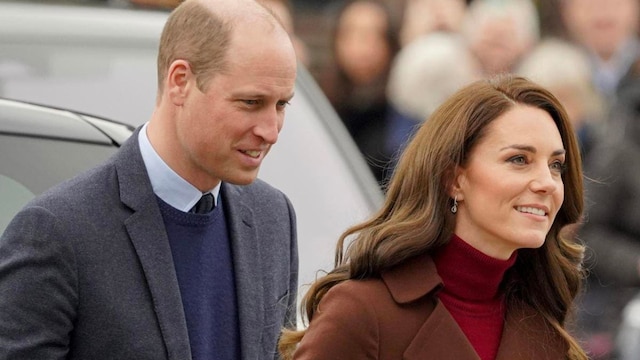Princess Charlotte’s royal titles tell a captivating story of change, tradition, and the evolving nature of the British monarchy.
From her early days as Princess Charlotte of Cambridge to her current title as Princess Charlotte of Wales, her journey reflects significant shifts in royal titles, particularly those initiated by Queen Elizabeth II.
As she matures, questions arise about her future titles—could she become the Duchess of Edinburgh or even the Princess Royal?
Delve into the remarkable evolution of her status and what it might mean for her future.
Born on May 2, 2015, Princess Charlotte quickly became a beloved figure within the royal family.
Her titles are not just ceremonial; they echo her family’s rich heritage and the changing landscape of the monarchy itself.
Notably, Charlotte is the first female royal to maintain her position in the line of succession despite having younger brothers.
This groundbreaking change was made possible by the 2013 Succession to the Crown Act, which Queen Elizabeth II championed.
This pivotal act abolished the old system of male primogeniture, which had favored younger brothers over older sisters.
Had this law not been enacted, Charlotte would have lost her place in the line of succession when Prince Louis was born.
Thanks to her great-grandmother’s foresight, Charlotte stands proudly as the fourth in line to the throne, following her grandfather, Prince Charles, her father, Prince William, and her older brother, Prince George.
Charlotte’s royal journey also signifies a departure from strict protocols established by her great-great-grandfather, King George V. In 1917, he set rules that limited the titles of prince and princess to the children and grandchildren of the monarch through the male line.
Traditionally, this meant only Prince George would receive the title of prince, leaving Charlotte and Louis without similar recognition.
However, with Queen Elizabeth’s reforms, Charlotte was given the title of Her Royal Highness Princess Charlotte of Cambridge, acknowledging all of Prince William and Princess Kate’s children equally.
As the monarchy continued to evolve, so did Charlotte’s titles.
The passing of Queen Elizabeth II in 2022 ushered in a new era, with King Charles III ascending the throne.
This shift prompted changes in titles across the royal family, including those of William and his children.
Charlotte transitioned from Princess Charlotte of Cambridge to Princess Charlotte of Cornwall and Cambridge, reflecting her father’s role as Duke of Cornwall.
Eventually, she became Princess Charlotte of Wales, a title steeped in history and significance.
This latest title not only connects her to a long lineage of royals but also hints at her future within the monarchy.
As Charlotte grows, speculation abounds regarding the titles she may inherit.
Royal watchers are particularly curious about the possibility of her becoming the Duchess of Edinburgh.
This esteemed title currently belongs to her great-uncle, Prince Edward, but will eventually revert to the crown, making it a potential gift from her father if he becomes king.
Another title that could be in Charlotte’s future is that of Princess Royal, traditionally held by the eldest daughter of the reigning monarch.
Currently, this title belongs to Anne, the Princess Royal, and cannot be held by more than one individual at a time.
Should William ascend the throne, he might choose to honor Charlotte with this prestigious title, continuing a legacy that spans centuries.
While many refer to Kate Middleton as Princess Kate, her formal titles stem from her marriage to William rather than birthright.
She became the Duchess of Cambridge upon marriage and later assumed the title of Princess of Wales as William’s status changed.
Nevertheless, the public affectionately calls her Princess, much like they did with the late Princess Diana.
Kate’s influence is undeniable, and her dedication to nurturing Charlotte will play a crucial role in shaping her daughter’s future.
As Princess Charlotte continues to grow, her life is set against the backdrop of a rapidly changing monarchy.
Her current title, Her Royal Highness Princess Charlotte of Wales, reflects both her father’s legacy and the broader evolution of the royal family.
However, her journey is just beginning.
The royal family may introduce new titles that will further define her place in this storied institution.
Charlotte’s life symbolizes the monarchy’s path forward.
Her titles narrate a tale of blending tradition with modernity, honoring the past while looking ahead.
The changes initiated by Queen Elizabeth regarding succession laws were monumental for gender equality, ensuring Charlotte’s historical significance remains intact.
As her titles evolve, one truth stands firm: Charlotte’s future is bright, and she is poised to leave an indelible mark on royal history.
Whether she becomes the Duchess of Edinburgh, the Princess Royal, or holds a title yet to be imagined, Princess Charlotte’s role within the royal family will undoubtedly be one of influence and importance.
Her journey is not merely about titles; it’s about the legacy she is building as a modern royal in a world that continues to change.
Related Stories

